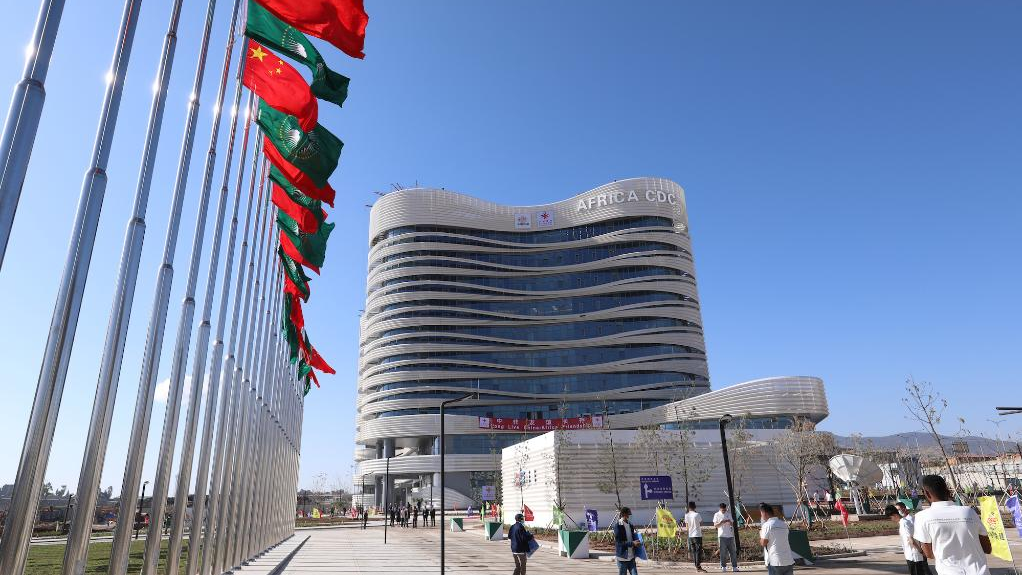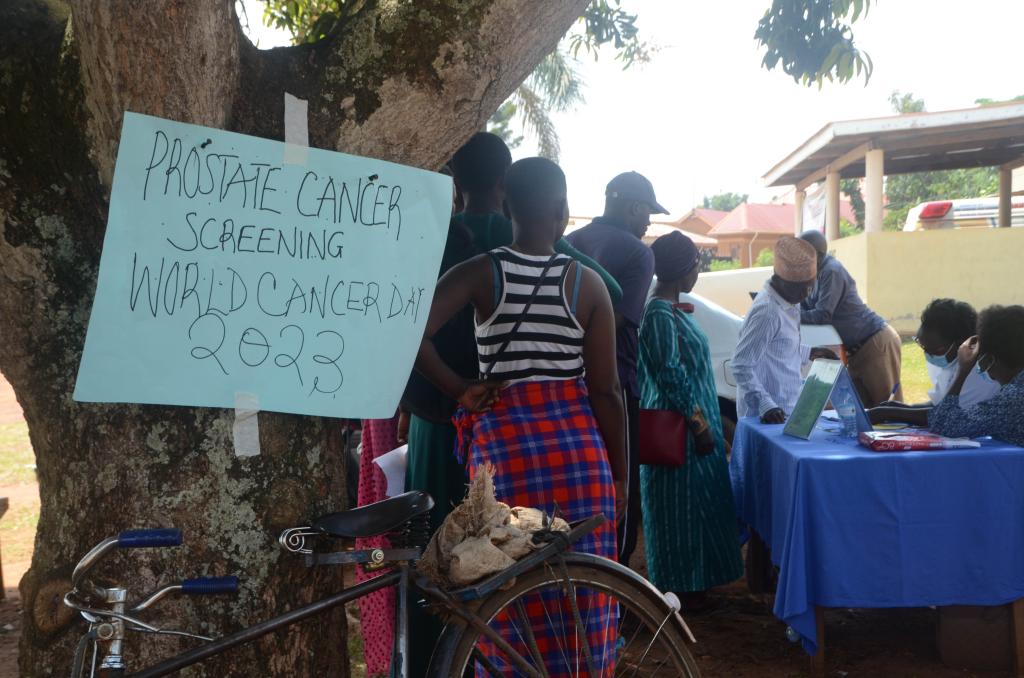
The headquarters building of the Africa Centers for Disease Control and Prevention (Africa CDC) in Addis Ababa, Ethiopia, January 11, 2023. /Xinhua
The headquarters building of the Africa Centers for Disease Control and Prevention (Africa CDC) in Addis Ababa, Ethiopia, January 11, 2023. /Xinhua
Editor's note: Dr Jean Kaseya is director general of Africa Centres for Disease Control and Prevention (CDC). Dr Yewande Alimi is Antimicrobial Resistance and One Health unit lead at Africa CDC. Dr Yenew Kebede is head of the Division of Laboratory Systems and Networks at Africa CDC. The article reflects the authors' opinions and not necessarily the views of CGTN.
Leaders and experts from across Africa and around the world gathered in Nairobi, Kenya, earlier this month during the Africa Climate Summit, to discuss one of the most pressing challenges facing our world today: the growing burden of climate change on the African continent.
Africa is the most vulnerable continent to the negative effects of climate change, despite being the lowest contributor to greenhouse gas emissions globally. Across the continent, the changing climate has ushered in an era of unprecedented challenges that transcend borders and disciplines. These challenges are felt on multiple fronts – from extreme weather events and rising sea levels to shifts in ecosystems and agricultural patterns.
Climate change also impacts our health. Increases in globalization, urban density, and the overlap of habitats between humans and animals provide new opportunities for the emergence and spread of diseases, impacting human, animal and environmental health.
Cyclones, floods, and droughts, which are becoming more frequent and severe due to climate change, can also lead to a wide array of health challenges. For example, following the devastating Cyclone Idai in 2019, Mozambique experienced a cholera outbreak, with over 6,000 cases reported – and efforts to control the outbreak were hindered by damages from the cyclone.
Meanwhile, drought in the Horn of Africa has led to a scarcity of water sources, reduced agricultural productivity, and loss of grazing lands for livestock – which, in turn, diminishes food supplies and leads to malnutrition among vulnerable populations.
Climate events such as these also limit access to clean water and sanitation, impacting hand hygiene practices, which are critical to reducing the spread of diseases.
These escalating threats do not exist in silos. They affect all countries, sectors and disciplines. In the face of these multifaceted challenges, it is imperative that we adopt a comprehensive, multisectoral and transdisciplinary approach.
The "One Health" approach, with its emphasis on collaboration across human, animal, and environmental health, provides a holistic framework to tackle this intricate web of challenges. By recognizing the interdependence of humans, animals and our environment, we can better understand the drivers of disease and find sustainable and lasting solutions to climate threats.
Africa CDC recognizes this imperative and is working to address issues such as zoonotic diseases, food safety, climate change, and antimicrobial resistance through a "One Health" approach. Working closely with countries and regional coordination centers, we are helping to build capacity and strengthen collaboration to prevent, respond to and control climate-related public health events on the continent. This commitment aligns with the African Union's (AU) Agenda 2063, "The Africa We Want," and the AU Africa Health Strategy, demonstrating a clear path towards integrated health solutions.

People line up to get free cancer screening during a World Cancer Day event in Mukono, Uganda, February 4, 2023. /Xinhua
People line up to get free cancer screening during a World Cancer Day event in Mukono, Uganda, February 4, 2023. /Xinhua
Yet, as we move forward, we face another challenge: securing investments that adequately address the health impacts of climate change. Current global climate investments often overlook the specific needs of African countries.
Furthermore, a considerable knowledge gap persists in understanding the science of climate change's impact on public health events in Africa. Urgent investments are required to enhance early warning systems and strengthen health systems to respond effectively to climate-related emergencies, and to expand African research on the link between climate and health.
As shared health challenges in Africa continue to grow, investing in climate adaptation and health security through a "One Health" approach is essential for effective, holistic responses. For example, "One Health" research can help us identify possible climate threats, facilitating early detection and surveillance – a critical component of resilient health systems. This approach helps anticipate and mitigate the health impacts of climate change, such as the spread of disease vectors and emerging health risks due to changing ecosystems.
In addition, many emerging infectious diseases are directly influenced by factors like wildlife diversity, population growth, urbanization, and climate change. The "One Health" approach can help us understand the origins and transmission patterns of these diseases, enabling effective prevention and response strategies.
Investing in African research and innovation is also vital to generate evidence and knowledge that can inform policies and interventions. This is crucial for building resilience and adaptation at the local, national and regional levels. Moreover, leveraging African knowledge and innovation can promote climate-smart agriculture, enhance water management, and bolster early warning systems and health system responses to climate-related emergencies.
The "One Health" approach provides a promising path forward, but its success hinges on critical factors: investment, partnership, and collaboration. The upcoming International Conference on Public Health in Africa (CPHIA 2023) in Lusaka, Zambia, presents an important opportunity to advance global and regional climate-health action.
CPHIA 2023 will unite governments, research institutions, civil society, the private sector, and international partners – working across human, animal and environmental health – with a key focus on building resilience in the face of climate threats and strengthening collaboration to address climate change and health challenges holistically. Africa CDC is committed to working with stakeholders across sectors, alongside the AU and its member states, to advance these shared goals.
In a time of great uncertainty and vulnerability from climate change, the "One Health" approach offers a path towards opportunity, potential for innovation, and resilience through partnership. By working together across the fields of human, animal, and environmental health, we will be better equipped to address the shared challenges that Africa faces. This approach is not just a response to current challenges but an investment in a sustainable and resilient future for our continent – a future where the health of our people and our planet flourish together.
(If you want to contribute and have specific expertise, please contact us at opinions@cgtn.com. Follow @thouse_opinions on Twitter to discover the latest commentaries in the CGTN Opinion Section.)